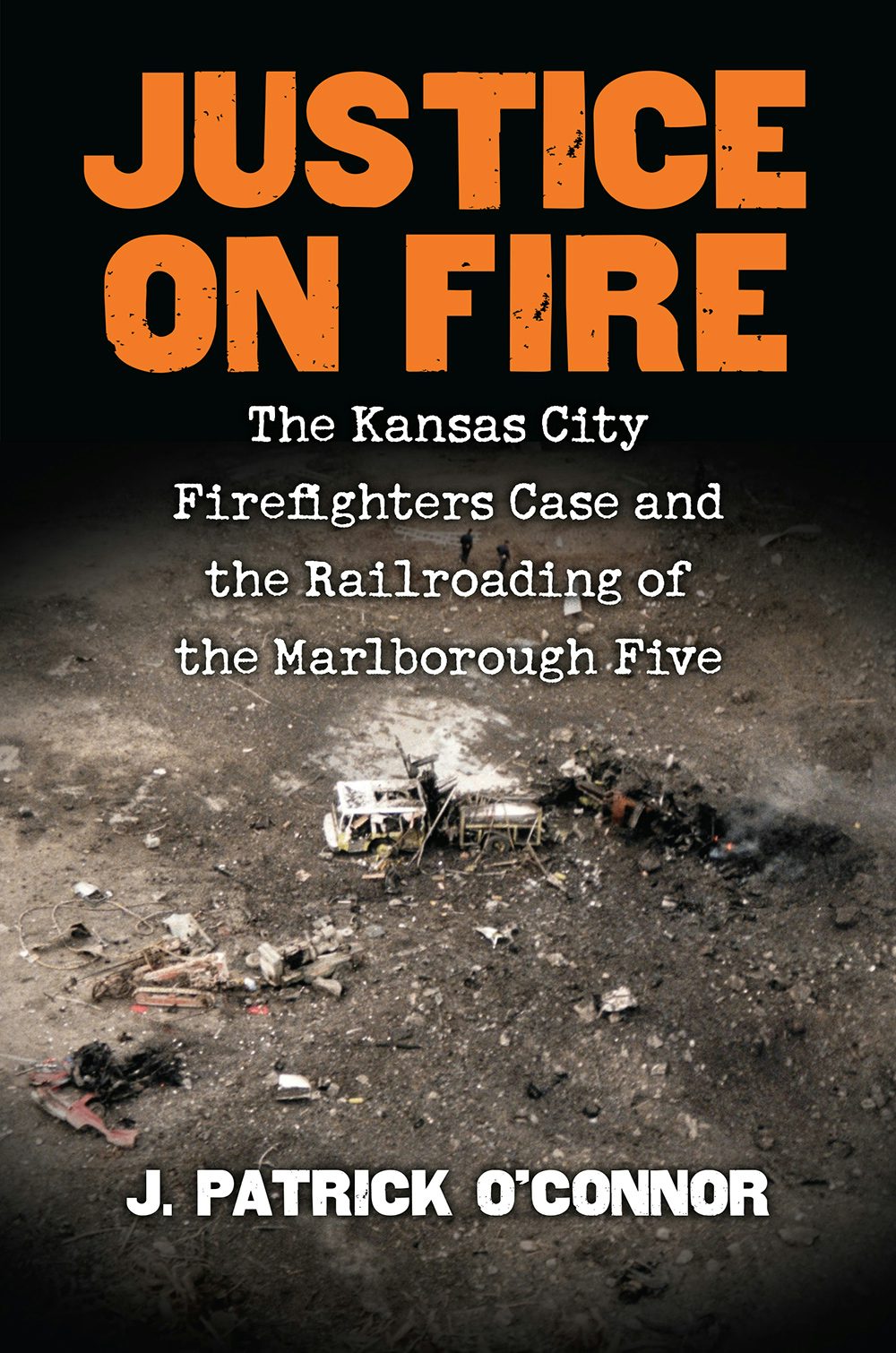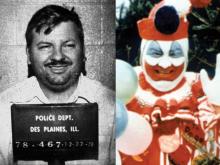April 28, 2023

James Earl Ray
Following the assassination of Martin Luther King Jr., the FBI placed his alleged assassin, James Earl Ray, on its “Top Ten Most Wanted” list. In the posting, the word “conspiracy” was mentioned. It led to unintended consequences and laid the groundwork for the belief that King was the target of a plot organized by the Johnson administration and the FBI.
By Mel Ayton
In 2019 a group of “concerned citizens” was formed, calling themselves the Truth and Reconciliation Committee (TRC). The membership included numerous Hollywood celebrities such as Oliver Stone, Alec Baldwin, and Martin Sheen, as well as Robert F. Kennedy Jr. and MLK’s nephew Isaac Newton Farris Jr. The TRC promoted the idea that President Kennedy, his brother Robert Kennedy, Martin Luther King Jr. and Malcolm X were assassinated as the result of conspiracies organized by the government and then covered up. King’s convicted assassin, James Earl Ray, they alleged, was not the real killer of the Civil Rights leader.
The TRC believed Deep State conspiracy ideas recast the evidence in the case in a form more consistent with the idea that King was so threatening to the power establishment he had to be eliminated. This notion continues to appeal to many Americans even after government files have been released, five government investigations have concluded Ray was guilty of killing King, and over the decades U.S. courts have repeatedly rejected Ray’s pleas of innocence.[1]
In the year following King’s April 1968 murder, the idea there may have been a conspiracy was not outlandish. There were questions to be answered and facts to be ascertained when investigators, both private and governmental, began to dig deep into assassin James Earl Ray’s crime and motives.
And the FBI hinted at a conspiracy when it began its investigation of the murder and suspect James Earl Ray’s flight from justice. President Johnson wanted the FBI involved in the investigation. When Ray was posted on the FBI’s “Top Ten Most Wanted” list the word “conspiracy” was mentioned. As murder was the responsibility of the state, the FBI needed to show that a federal crime had been committed and the charge of conspiracy to deprive King of his civil rights was chosen. It led to unintended consequences and laid the groundwork for the belief that King was the target of a plot organized by the Johnson administration and the FBI.
In the decades that followed the assassination of King, initial skepticism about the government’s findings resulted in a poisonous fiction concocted by extreme conspiracy-believers without the faintest grounding in reality. Today, being a supporter of the alleged “Deep State King conspiracy” theory requires adherents to express intense opinions which are not only absurd but ignore empirical evidence. Conspiracy writers allege government employees, numbering in their hundreds if not thousands, conspired together, agreeing to commit murder. Missing from the conspiracists’ reasoning was the fact that in the process of developing their plans these government workers would risk their entire careers – and expose themselves to prosecutions for the crime of accessory after the fact to murder. As FBI profiler John Douglas wrote, “...anyone who’s worked in the government, even in the intelligence community, will tell you that NOTHING that big or well publicized stays secret for long. The big bureaucracy is fundamentally incapable of carrying out a conspiracy and keeping it under wraps.” [2]
Furthermore, if FBI Director J. Edgar Hoover had planned to neutralize King by killing him, he would have first destroyed the COINTELPRO records – the FBI files which chronicled the long campaign by the Bureau to neutralize the Ku Klux Klan, the American Communist Party, Black Power and far-left radical groups in the United States – as well as records delineating the FBI’s long campaign to destroy King.
In 1969 Ray had pled guilty and received a sentence of 99 years but he began to understand that he could “weaponize” the support he received from many Americans, including African American leaders who believed the government was behind the King assassination. And they all had one thing in common – a distrust of the FBI. Ray also exploited the fact that domestic and foreign journalists with an anti-American bias had also promoted his story, alleging the American president and the FBI had ordered King’s assassination.[3]
Ray also knew that since the mid to late 1960s public opinion was highly susceptible to conspiracy ideas. The public were inundated with various theories about the assassination of President Kennedy and the notion that had Lee Harvey Oswald gone to trial he would have been acquitted. It is likely Ray learned these lessons well, knowing he could influence public opinion by promoting the government-led conspiracy idea. Additionally, conspiracists could minimize the importance of Ray’s guilt and maximize the importance of a government conspiracy because many people believed that it was impossible for an incompetent criminal like Ray, a man who bungled many armed robbery attempts, could have committed the murder.[4] Conspiracy ideas persuaded many Ray defenders to skewer the evidence in the case in a form that fit the idea that King was so threatening to the power establishment he had to be eliminated by powerful forces.
Throughout the years that followed his trial, Ray clung to the idea of this purported vast conspiracy to keep his case alive. In Ray’s mind promoting a conspiracy would give him the chance of freedom and, paradoxically, also provide him with the status of “hired assassin” or “co-conspirator” during his time in prison if he failed to secure his freedom. Additionally, the notion of conspiracy increased the sales value of his story, providing him with finances he would need to fight his case.
The U.S. House Select Committee on Assassinations (1976-1979) had concluded that a group of St. Louis businesspeople allegedly placed a bounty on King’s head and may have worked with Ray in his plans to kill King. But the committee rejected notions of FBI or any other U.S. government department collusion in the murder of King.
The alleged culprits who the committee named as the providers of the bounty died years prior to the formation of the U.S. House of Representatives investigation. But there was some truth in the fact that a bounty did exist and there were a number of far-right extremist groups who had indeed advocated paying a bounty to anyone who killed King.
There is also some evidence that the Ray brothers knew about the bounty, but nowhere in the investigation records is there evidence they collected it. Thorough research into the Ray family’s finances by government and private investigators failed to show they had come into any large amount of money. If the brothers had indeed believed the offer of a bounty was legitimate, they were in no position to demand payment from the alleged providers if they had been double-crossed. Such a demand would have placed their lives in jeopardy.
The conspiracy hysteria came to a head in 1999 when Ray’s lawyer, William Pepper, and his fellow purveyors of a government conspiracy proceeded to draw heavily on their imaginations. Pepper and the King family managed to bring purported “conspirator” Lloyd Jowers to civil trial in which the defendant was found guilty. Pepper had no interest in seeing Jowers go to jail. The whole thrust of his efforts was trying to prove that he was merely a tool in a larger conspiracy involving the FBI, the military, the CIA and the Mafia. The one-sided trial presentation of the case allowed for no other result. King biographer and Pulitzer Prize-winning author David Garrow said the jury’s verdict “was meaningless.” Jowers was “an ostensible defendant,” Garrow wrote, “who for six years… has been going out of his way to plead guilty. During the trial Jowers’s inconsistent stories were never introduced; crucial witnesses were never called, and the defense was virtually non-existent. No one told the jury that Jowers had bragged about getting rich off his television appearances and had practically begged people to implicate him’. [5]
In June 2000, the Clinton Justice Department released the results of its 18-month investigation which had been called for by the King family after Jowers’s 1999 civil trial. No FBI agents took part because of long-standing suspicions that the Bureau had somehow been involved in King’s death. The inquiry involved investigators who worked for the Postal Service, Alcohol, Tobacco and Firearms and the Marshals Service. The investigators concluded that the allegations concerning a government conspiracy in the King case were bogus. [6]
In many ways Ray’s act of murder placed him in a win-win situation. Ray had been serving a 20-year prison sentence when he escaped from Missouri State Penitentiary in April 1967. As a fugitive escapee he did not or could not settle down and seek permanent employment. During his 13 months of freedom, he wandered across the US, travelling first to Mexico on marijuana smuggling trips and eventually settling in Los Angeles where he began to stalk King.
Without a social security number, his jobs were likely to be short term at best. He could have continued his smuggling operations out of Mexico but, as all escaped prisoners are aware, time would eventually run out. He had the option of robbing banks, but this too would likely have ended in arrest and imprisonment. And, had Ray been picked up for some petty offence, he knew he would be returned to prison to serve out the remaining 13 years of his sentence – plus the added time for escaping. His status in prison would remain as it had been, small and unimportant. He was also approaching 40 and he could only look forward to spending his remaining years as a nondescript inmate. But killing King would enhance his status, giving him incredible notoriety.
Ray had a number of options as a fugitive that could appeal to him whichever way events turned. He could kill King and escape abroad. Later when things had settled down, he may have been able to return to the United States in the belief a future president, perhaps the racist governor of Alabama and presidential candidate George Wallace would pardon him. If events turned out differently and he was captured the return to prison would be different; he would now have the high prisoner status he craved. Meanwhile, he would do what he was expert at – challenge the system, deny everything and pursue his “career” as a jailhouse lawyer. He could introduce doubt about his guilt, which was the eventual path he took, so that in the future a reduced sentence might be on offer. He was also aware of the possibility that if he killed King in the Deep South jurors might set him free or perhaps recommend a lenient prison sentence as had happened in previous cases involving the murder of Civil Rights leaders. “I don’t want to plead guilty,” Ray told his lawyer, Percy Foreman, “No white man ever got the chair in Tennessee for shooting a nigger.” [7]
Nonetheless, he was persuaded by Foreman to plead guilty. As Foreman told Ray, “There’s a 100 per cent chance you’ll be convicted and a 99 per cent chance you’ll get the death penalty.” Foreman was wrong about the odds on the death sentence. Following the March 1969 trial that had lasted 144 minutes, Ray was given a 99-year prison sentence and was led away to the State Penitentiary at Nashville. From Nashville he was sent to Brushy Mountain Prison, near Knoxville, Tennessee and was to spend the next 22 years there before he left Brushy for good in 1992. He died at the state facility in Nashville six years later in April 1998 from kidney and liver disease at age 70. His liver failure was caused by the hepatitis-C he had contracted from blood transfusions received after being stabbed more than 20 times by four inmates at Brushy prison in 1981.
Although there was no Deep State conspiracy to assassinate King, there was a conspiracy in the true sense of the word to murder the Civil Rights icon and it was organized by James Earl Ray with the assistance of his brothers.
James Earl Ray was inspired to commit the murder by his hatred of Martin Luther King Jr. and the hope he would benefit financially following the murder. Following his arrest in London, Ray told his Scotland Yard police escort, Alexander Eist, that he would make money from the notoriety of the case. Ray said all he would be charged with was conspiracy and that he would only get, “10 to 12 years for that.”[8] And there is clear evidence that his brothers, John and Jerry, who had assisted James in escaping from prison and later assisted in helping him flee the country after the assassination, would benefit financially.[9]
All five of the government and state government investigations into the King murder failed to provide enough incriminating evidence implicating John and Jerry Ray in the King murder. Confirming the brothers’ role in the assassination had always been met with indecisiveness on the part of the Shelby County prosecutors who eventually decided that no jury would find them guilty. Their decision came after the grand jury, which sat to hear the evidence against James Earl Ray and was allowed to consider whether or not the brothers participated in the assassination, did not hand down any such charges.
If the jury had been allowed to consider the later admissions by Jerry and John Ray – proof they aided and abetted in the assassination – the outcome may have been different. When Jerry met with his brother James in Birmingham for the purchase of the rifle it is inconceivable James would not have told him of his plans to kill King. Similarly, when James met with John the evening before the assassination, he would also not have failed to inform him of his plans. Each step of the way the brothers were providing assistance to James in the commission of his crime.
Using the simpler and broader interpretation of conspiracy – i.e., more than one person who had prior knowledge of and/or involvement in the plan for assassination – which may or may not be identical to the legal definitions for a criminal conspiracy – then there is no doubt Jerry and John were co-conspirators.
There is no evidence that Ray or his brothers had any pre-assassination contact with the people who offered the bounty, but it is likely they believed it was genuine. There is some evidence that one of Ray’s lawyers, J.B. Stoner, knew the Ray brothers before the assassination and may have encouraged them to seek it.[10] It is plausible Ray may have wanted to collect whatever money was on offer through his brothers at some future date.
However, there is no credible evidence that Ray or his brothers made arrangements to collect the alleged bounty prior to or following the assassination. Neither Jerry nor John showed any evidence of having come into money in the years after the assassination. And if the bounty had been collected, it would have negated any reason for John to rob a bank in 1970 for which he was convicted. If a bounty was on offer and either of the brothers attempted to collect it, they were disappointed. And because such matters were dealt with through intermediaries, Ray or his brothers were in no position to name them if they had indeed been double-crossed.
It is also clear that Ray’s actions were not necessarily predicated on the provision of a bounty. He knew that his crime was of such overwhelming proportions that publicity generated by the murder would never die, especially in a country like the United States which categorized infamous murderers as celebrities. He was fully aware that the killers of Mississippi Civil Rights leader Medgar Evers and Civil Rights activist Viola Liuzzo had been treated leniently by Southern courts which gave him hope he would also be set free. Book deals, magazine features and television companies would always be on offer to pay for defense lawyers and financial provision for his brothers – “golden rain” as they called it. If he had been lucky enough to escape to a foreign country, he could have sold his story. He would also have been aware that racist right-wing organizations and a large body of U.S. public opinion were behind him.
What remains in this case is another question apart from the missing proof that Ray may have been incited to kill King by J.B Stoner. Why did Ray continue to insist in his innocence up to the day he died in 1998?
Following King’s death, Jerry Ray told FBI agents his brother James would “never talk.” It was a “family trait,” Jerry said. None of the Rays talked. In fact, James was so faithful to the code of omertà he would even lie about the circumstances of his Missouri State Penitentiary escape to hide the fact he had been assisted by fellow inmates who worked with him in the prison bakery.
The Ray brothers’ entire criminal careers were centered around a hatred for authority and a belief they should never admit guilt.
Throughout his 40 years in jail for killing King, Ray knew there was a well-organized effort by his defenders nationally to set him free. Admitting guilt would, in one stroke, halt those efforts.
Ray had practiced deception all his life. A psychiatrist employed by the Missouri state prison system had been convinced that Ray was capable of murder. Rather than the bumbling crook he is portrayed by his defenders, Ray was cunning, crafty and manipulative. Some of his lawyers have spoken of how Ray would try to manipulate them. He was an astute jailhouse lawyer who had spent years learning the fine points of the law, especially with respect to appeals procedures and how the law applied to the lawyer/client relationship.
Keeping the real truth about the assassination hidden would not have been difficult for a man like Ray. He had always been a loner who never fully revealed himself to anyone – not his family, his fellow prisoners, his acquaintances or his lawyers. All of his life he had refused to cooperate with authority, had contempt for the whole justice system, defiantly mocked the police and concocted lies for his defense. He was devoid of any moral center; he never felt the need to chew the fat with anyone or to talk about himself.
If Ray had admitted guilt in his dying days, he would have left his brothers open to a new investigation that would inevitably follow a full confession. Ray loved his brothers. In fact, James was a loner except for his brothers and his sister Carol Pepper, who managed James’ earnings as a prison drug merchant. He was the older brother who was admired by the remaining family members. John Ray is on record as saying, “James would do anything for us and we for him.” [11] He is also on record as saying, “My record shows I would always come to the aid of my brother, unless it involved hooking up with the mob for some long-term contract or relationship.”[12]
In his plans for the assassination, James did not want his brothers to take the risk of accompanying him to Memphis. He was the older brother, and he was the one who was already a fugitive from justice. He wanted Jerry and John’s help, but he also wanted them to avoid arrest. James’s intention was to commit the murder then meet up with his brothers later after he had planned his escape to another country. But James was clearly unaware that the assistance the brothers gave him both before and after the assassination rendered them culpable to charges of aiding and abetting in the commission of the murder of King or even to charges of being co-conspirators. This part of the original FBI investigation was never fully examined.
The brothers had a pact never to snitch on each other and never to do anything that would bring either of them under suspicion for any criminal act. Adhering to his long-held acceptance of the criminal code, Ray would not give up his brothers even to the point of death. Telling the truth about the assassination would leave both brothers open to charges of murder because there is no statute of limitations to first degree murder in Tennessee. Jerry and John remained free thanks to their older brother.
James Earl Ray also knew that both brothers had made a living out of their connection to him. The money came from attending conferences about the assassination organized by groups who promoted the idea that the Deep State had killed King. If the brothers had come clean after James’s death, this source of money would have dried up. Ergo, it was the “conspiracy industry” that prevented any further confession.
[1] ‘MLK, JFK, RFK, Malcolm X, Celebs and Fams, MLK Demand New Probe ... Assassinations Were Conspiracies’, 19 January 2019,https://www.tmz.com/2019/01/19/jfk-rfk-mlk-malcolm-x-murders-assassinations-conspiracies-reopen-trc/
[2] Douglas, J. The Anatomy of Motive, Scribner, New York, 1999, 249
[3] The Atlantic Monthly, Lawyers and Lizard Heads by Douglas Brinkley and Anne Brinkley, May 2002
[4] In fact, James Earl Ray was successful in many robberies but avoided detection, according to his friend, Jack Gowran. FBI MURKIN Files, File 52, 92.
[5] US News and World Report, “A Curious Conspiracy” by Chitra Ragavan 20 December 1999.
[6] U. S. Department of Justice, 2000, United States Department of Justice Investigation Of Recent Allegations Regarding The Assassination Of Dr. Martin Luther King Jr., Parts 1-6., U.S. Government Printing Office. https://permanent.fdlp.gov/websites/usdojgov/www.usdoj.gov/crt/crim/mlk/part1.htm
[7] Gerold Frank, An American Death, 351
[8] US Congress, HSCA Hearings, Vol. IV, 18–19
[9] William Bradford Huie, He Slew the Dreamer, 204
[10] Illinois Times, “The Assassin’s Brother” by C.D. Stelzer, 28 November 2007, https:// www.illinoistimes.com/springfield/the-assassins-brother/Content?oid=1144...
[11] St Louis Post-Dispatch, 9 June 1968, A31 and US Congress, HSCA Hearings, Testimony of John Larry Ray, Vol. VIII, 589, 600.
[12] John Larry Ray, Truth at Last, 52.
___________________________________________________________________________
Mel Ayton is the author of The Man Who Killed Martin Luther King – The Life and Crimes of James Earl Ray (Frontline Books, Published in the UK in March 2023 and the U.S. in June 2023)








